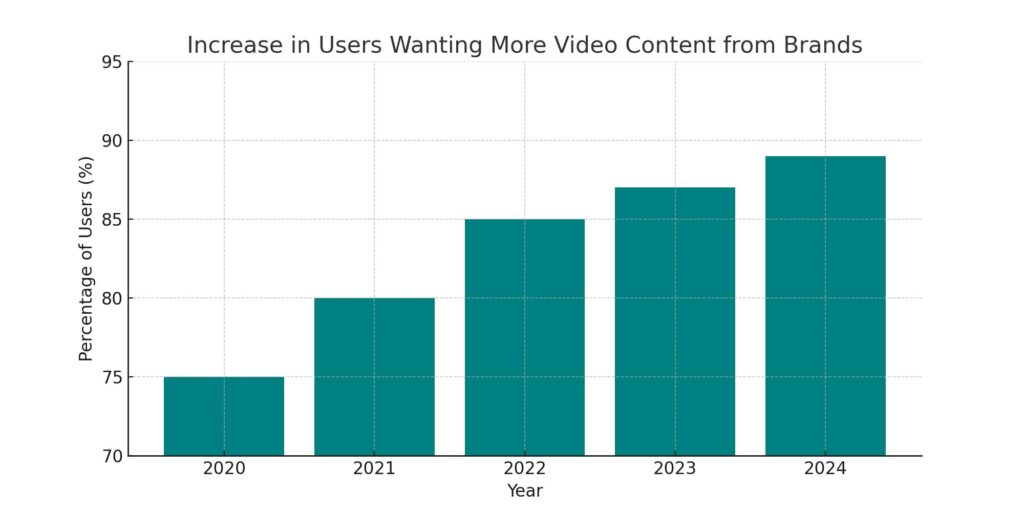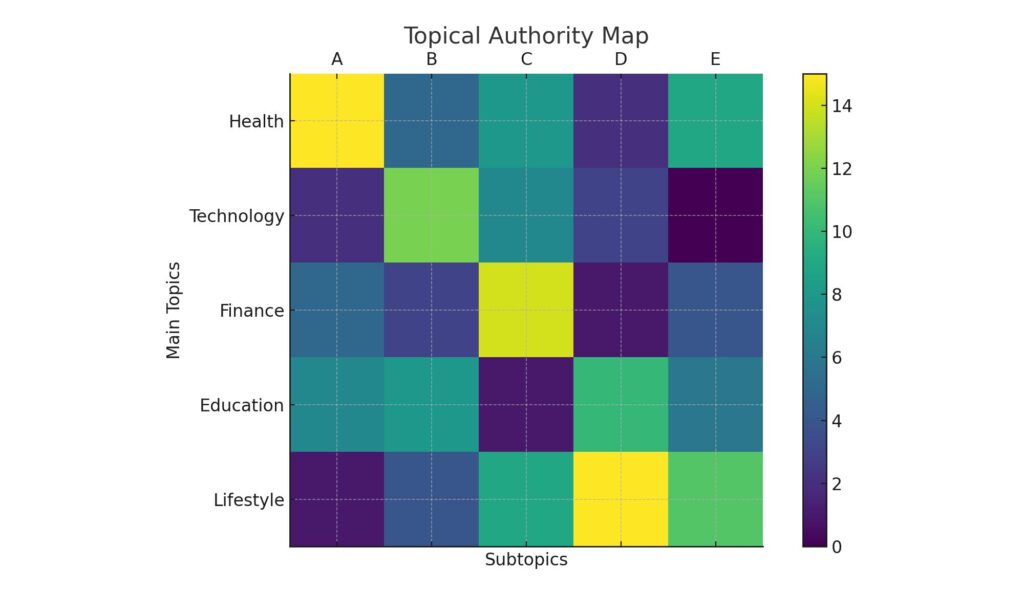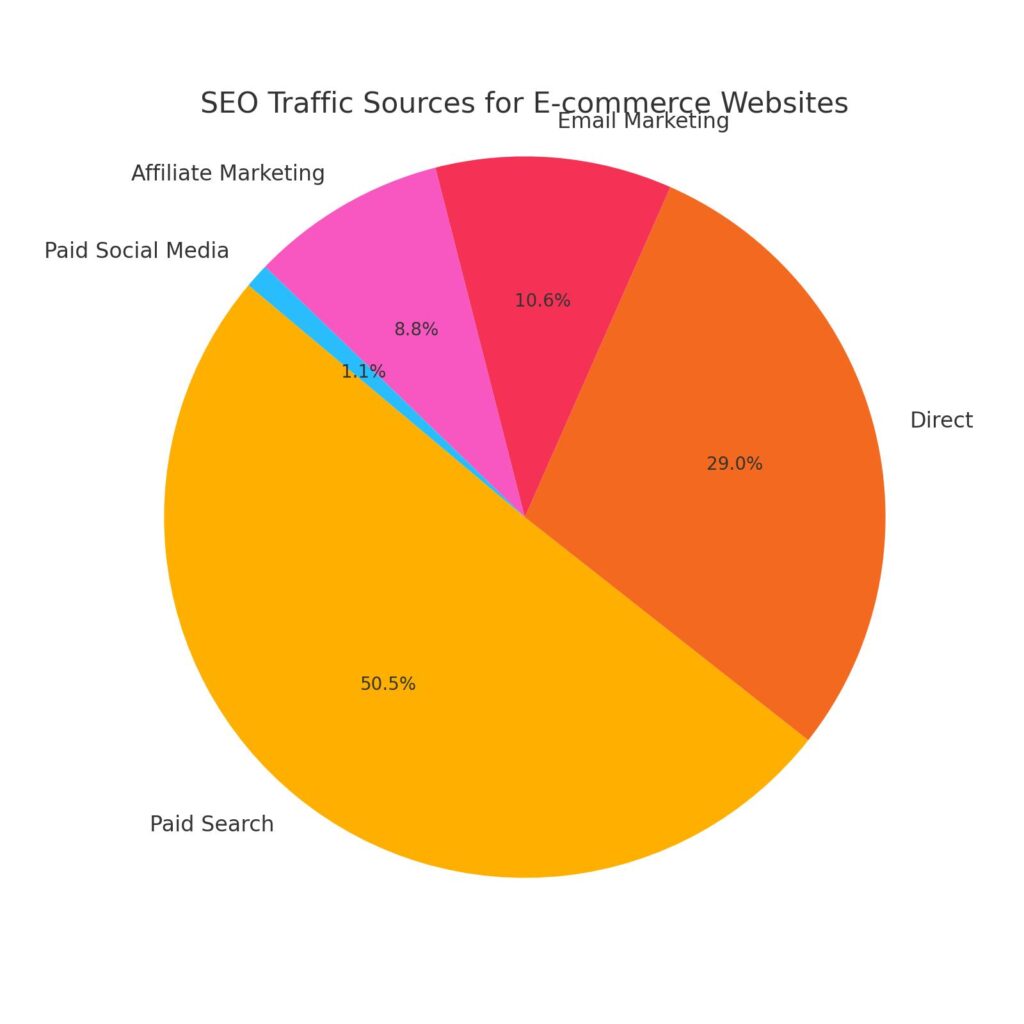Search engine optimization (SEO) is constantly evolving to keep pace with changes in search engine algorithms, user behavior, and web technologies. As we approach 2024, several key SEO trends are emerging that have the potential to greatly impact organic traffic and search visibility.
By staying updated on these top trends and adapting your strategy accordingly, you can ensure your website ranks highly and reaches the right audiences in 2024 and beyond. Whether you choose to leverage AI-generated content, optimize for Search Generative Experience (SGE), or demonstrate increased E-E-A-T, search engines and users alike will reward websites that adopt these forward-thinking trends.
This article will explore the top 7 SEO trends that are set to dominate the world of search in 2024, helping you unlock new opportunities to grow your organic presence and traffic.
- 1. The Rise of Author Entities
- 2. Dominance of Video Content in SEO
- 3. AI and Automation in Content Creation
- 4. The Impact of Search Generative Experience (SGE)
- 5. The Increasing Importance of E-E-A-T
- 6. Establishing Topical Authority
- 7. Multi-Channel Optimization
- Conclusion
- Top 10 Most Popular Questions Related to "SEO Trends in 2024"
1. The Rise of Author Entities
Understanding Author Entities
One emerging trend is the creation of author entities – dedicated pages on search engines that showcase writers, journalists, creators, and other authors. These act as centralized profiles linking together an author’s body of work.
According to Moz, author entities will likely play a vital role in SEO as engines look to better index and rank unique authors. For users, it provides a simple way to explore everything written by a specific expert in one place.
How to Leverage Author Entities for SEO
To optimize use of author entities, content creators should focus on consolidating their work under a consistent public persona that acts as their brand. Ensure you have an authoritative online bio detailing your expertise.
Link frequently to your own articles when references are relevant, allowing search bots to associate content to your profile. Promote your articles on social media and community sites, encouraging external natural links that search engines associate with your authorship.
Prolific writers like Rand Fishkin have already amassed extensive search engine author entities they leverage to rank highly for valuable search queries.
2. Dominance of Video Content in SEO
Why Video is Crucial for SEO in 2024
Video dominates today’s content landscape – according to Insivia, 92% of mobile video viewers share videos with others. Furthermore, including video on landing pages can increase conversion rates by over 80%.
As video consumption grows, search engines have developed new abilities to index, rank, and display video content. This makes video SEO – the practice of optimizing videos to perform better on SERPs – vital for growth.
Best Practices for Video SEO
When publishing videos, focus on strong metadata, subtitles, transcripts, and compelling descriptive titles and snippets. Ensure your hosting platform allows videos to be easily indexed by search crawlers.
Tools like TubeBuddy and RapidTags can greatly enhance video optimization for YouTube and other platforms.
Promote your videos across social channels and embed them on website pages to build engagement metrics search engines factor into ranking. Follow these best practices, and search visibility for video content will become immense.

3. AI and Automation in Content Creation
Integrating AI into the Content Creation Process
Advancements in natural language AI like ChatGPT and GPT-4 have enabled automatically generated written content that seems human. While ethical concerns exist, if used judiciously, AI content creation can greatly enhance SEO efforts.
AI tools help create new articles, product descriptions, landing pages and more with speed and scale unattainable manually. More unique, optimized content means more opportunities for search visibility.
Ethical Considerations and Best Uses of AI in SEO
Be extremely transparent about any AI-generated content, as deception violates search engine guidelines. Avoid generating entire websites with AI, and balance machine-made content with human writing. Use AI responsibly to recommend ideas or assist where needed, but the end result should demonstrate E-E-A-T principles.
Focus AI on mundane, repetitive SEO tasks like meta description and title generation rather than complete articles. Always carefully review and edit before publishing. AI supports human marketers rather than replacing them outright.

4. The Impact of Search Generative Experience (SGE)
What is SGE and How Does It Work?
First introduced by Google in 2022, Search Generative Experience uses AI to better understand search intent and provide dynamic, customized results in real time. As opposed to static page rankings, SGE draws data from multiple points to serve tailored information to each user.
Early forms of SGE are already altering traditional SEO landscapes – for instance, providing conversational question-and-answer experiences above standard results.
Optimizing Content for SGE
Since SGE results are generated uniquely for each query, traditional keyword-focused optimization becomes less impactful. Instead, create content to provide immense value for users regardless of exact queries.
Ensure pages demonstrate extremely strong E-E-A-T signals relevant to your niche so algorithms recognize your authority on subjects.
Focus on full-funnel content journeys with linked recommendation engines to keep users engaged. SGE means catering to implicit user intents rather than exact match keywords.
5. The Increasing Importance of E-E-A-T
Components of E-E-A-T
Originally launched in 2019, the concept of E-E-A-T focuses on how well a website exemplifies Expertise, Authoritativeness, Trustworthiness – key elements search engines use to gauge content quality.
With the rise of misinformation and content farms, E-E-A-T provides critical signals for search bots to elevate sites publishing accurate, in-depth, transparent content while demoting low-quality spam sites.
Demonstrating E-E-A-T in Your Content
Conduct extensive domain research and clearly showcase credentials, certifications, experience and third-party verification signals associated with authors. Establish thought leadership and recognition related to your niche.
Regularly link out to high-authority sources and datasets to back claims. Be extremely transparent by clearly listing any potential conflicts of interests and disclosing motivations or business relations.
Implement good UX signals – strong site speed, modern design, high engagement rates – to build user trust. Follow these steps to guarantee strong E-E-A-T signals.
6. Establishing Topical Authority
Building Topical Authority Through Content
As SGE grows, search engines must better understand site’s depth of knowledge on highly specific topics to correctly match content with queries. This means establishing clear topical authority is vital.
Creating expansive, interlinked content focused around specific subjects you specialize in improves topical authority. Internal links, pillars pages, clusters around subtopics, and other content structures demonstrate authority.
Topical Maps and Their Role in SEO
An effective approach is developing detailed site maps classifying all content around core topics and subtopics. This provides easy navigation for users while showing search bots the breadth and depth of your expertise on each theme.
Tools like Mindnode help easily build out extensive topical maps you can integrate across your site.

7. Multi-Channel Optimization
Beyond Google: The Need for Multi-Channel SEO
The dominance of Google makes SEOs laser-focused on Google rankings. However, users increasingly engage with content across social platforms, audio apps, video communities and more.
These channels represent massive untapped visibility and traffic opportunities for those implementing true multi-channel SEO.
Techniques for Multi-Channel SEO Success
Creating consistently branded social profiles and optimizing YouTube channels boosts exposure. Share content across communities like Reddit and Quora to drive referral traffic. Spin written articles into podcasts to access new audiences.
Adopt an omnichannel mindset looking beyond Google to realize the full potential of great content. Integrate measurement tools like Google Analytics to track ROI across channels.


Conclusion
By staying agile and proactively preparing for paradigm shifts in SEO, digital marketers can future-proof strategies for long-term organic growth. The trends explored above reveal a path forward: produce mobile-friendly video, leverage AI judiciously, optimize for dynamic SGE algorithms, demonstrate undisputed authority, an establish comprehensive topical ownership.
Companies that embrace these 2024 SEO trends will push their brands, products and services to the cutting edge – driving immense value by reaching wider audiences through higher visibility, more sales, and greater brand awareness over coming years.
Want to seize these trends to boost your 2024 SEO but aren’t sure where to get started? Let our team of marketing experts develop a tailored roadmap to drive targeted organic growth. Schedule a strategy session right now to transform your SEO for tomorrow.
Top 10 Most Popular Questions Related to “SEO Trends in 2024”
What is the impact of AI-generated content on SEO in 2024?
Google plans to reduce low-quality AI-generated content in search results by 40% in 2024. Businesses should focus on creating unique, expert-level content instead of relying on AI tools.
How will search intent impact SEO in 2024?
Understanding user search intent will be crucial in 2024. Marketers must create content that precisely matches what users are looking for, whether that’s quick answers, detailed guides, product comparisons, etc.
What is the role of mobile user experience in 2024 SEO?
Providing an excellent mobile user experience will be a key SEO factor in 2024 as more searches happen on mobile devices. Websites must be fast, responsive, and optimized for small screens.
How will Google’s Search Generative Experiences (SGE) affect SEO?
SGE, Google’s AI-powered search result summaries, will drive the need for concise, informative content that directly answers user queries and provides linked sources.
What is the impact of the shift from keyword-focused to user-focused SEO?
The focus will shift from optimizing for keywords to optimizing for user experience and satisfaction. Businesses must create content that truly meets users’ needs, not just search engine requirements.
How will SEO evolve from “search engine optimization” to “user experience optimization”?
SEO will become more about designing the best possible experience for users, not just technical website optimization. Providing value, answering questions, and building trust will be key.
What is the role of content quality and authority signals in 2024 SEO?
With the influx of AI-generated content, Google will prioritize high-quality, authoritative content from trusted sources. Backlinks, brand signals, and other authority indicators will be crucial.
How will SEO adapt to the rise of voice search and visual search?
As voice and visual search grow, SEO must focus on optimizing for natural language queries, providing concise answers, and incorporating relevant images/videos to match user intent.
What is the impact of Google’s algorithm updates on SEO in 2024?
Google plans major algorithm updates in 2024 to reduce low-quality content. Businesses must stay agile, monitor changes, and continuously optimize content to meet Google’s evolving quality standards.
How will SEO trends impact small businesses and startups in 2024?
Small businesses and startups can leverage SEO as a cost-effective way to reach customers in 2024. Focusing on user experience, content quality, and authority signals will be key to success.
